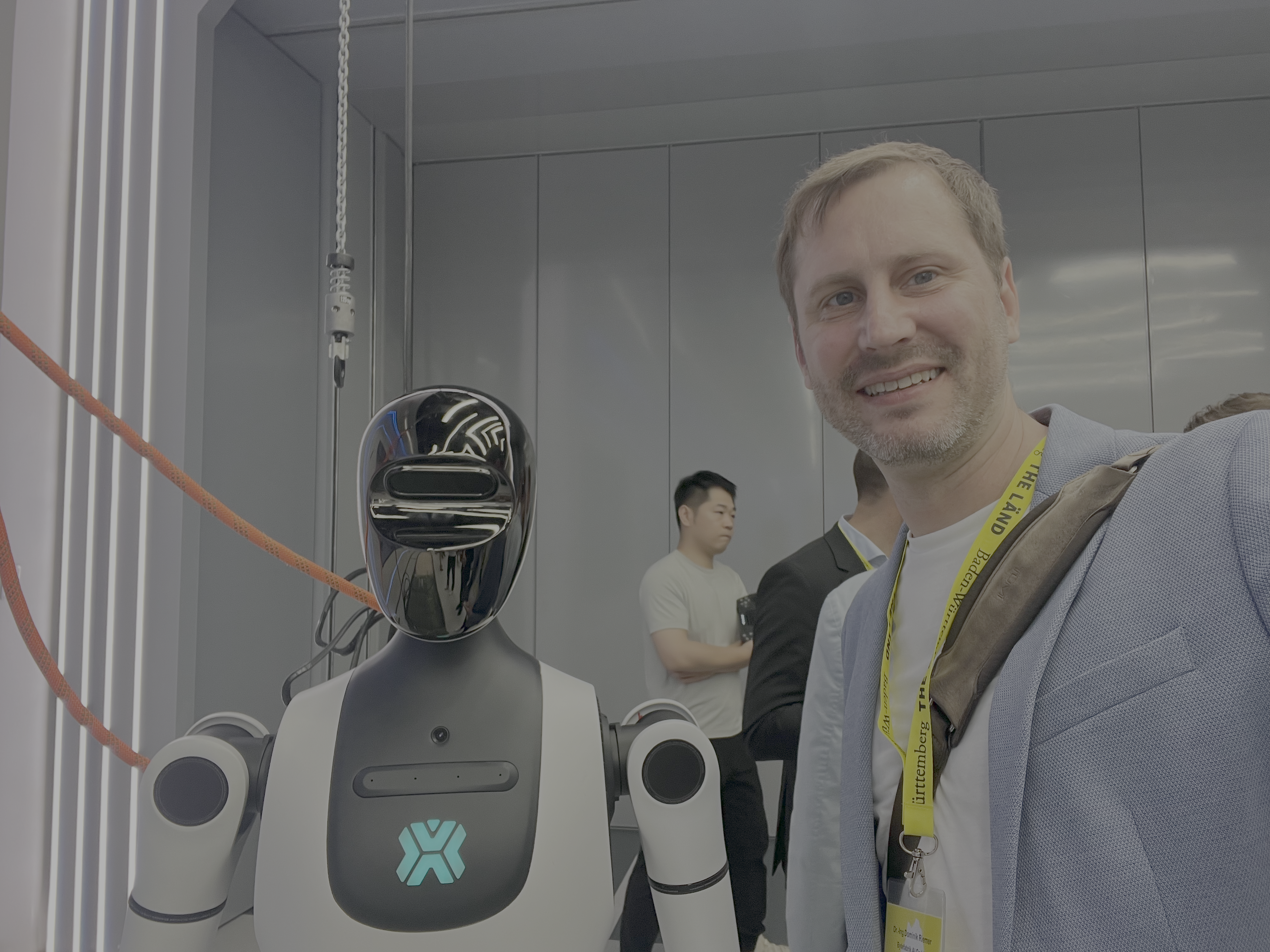Delegation Trip to China with Baden-Württemberg’s Minister of Economic Affairs

Introduction
Together with around 60 representatives from business, associations, and research, Bytefabrik.AI had the honor of accompanying Baden-Württemberg’s Minister of Economic Affairs, Dr. Nicole Hoffmeister-Kraut, on her delegation trip to China. The focus: intelligent and connected transport solutions as well as robotics – two topics that are also at the heart of our daily customer projects. The program included talks and company visits in Beijing, Guangzhou, and Shenzhen at renowned companies such as Xiaomi, XPeng, WeRide, and Tencent.
Why We Were There
Bytefabrik.AI helps manufacturing companies unlock the value of machine and process data – from machine data acquisition to AI-based root cause analysis. This is exactly where the pace is picking up in China: autonomous/assisted mobility, sensor technology, and robotics are converging, driven by dense innovation ecosystems and short iteration cycles. For us, the trip served as a condensed market probe: Which technologies are production-ready? Where do integration barriers lie? And what developments are emerging for the coming years?
As an emerging tech company in Baden-Württemberg, it was a great honor for us to accompany the Minister of Economic Affairs. In a week packed with exciting impressions and discussions, we were able to gain valuable insights into the Chinese market and expand our network.
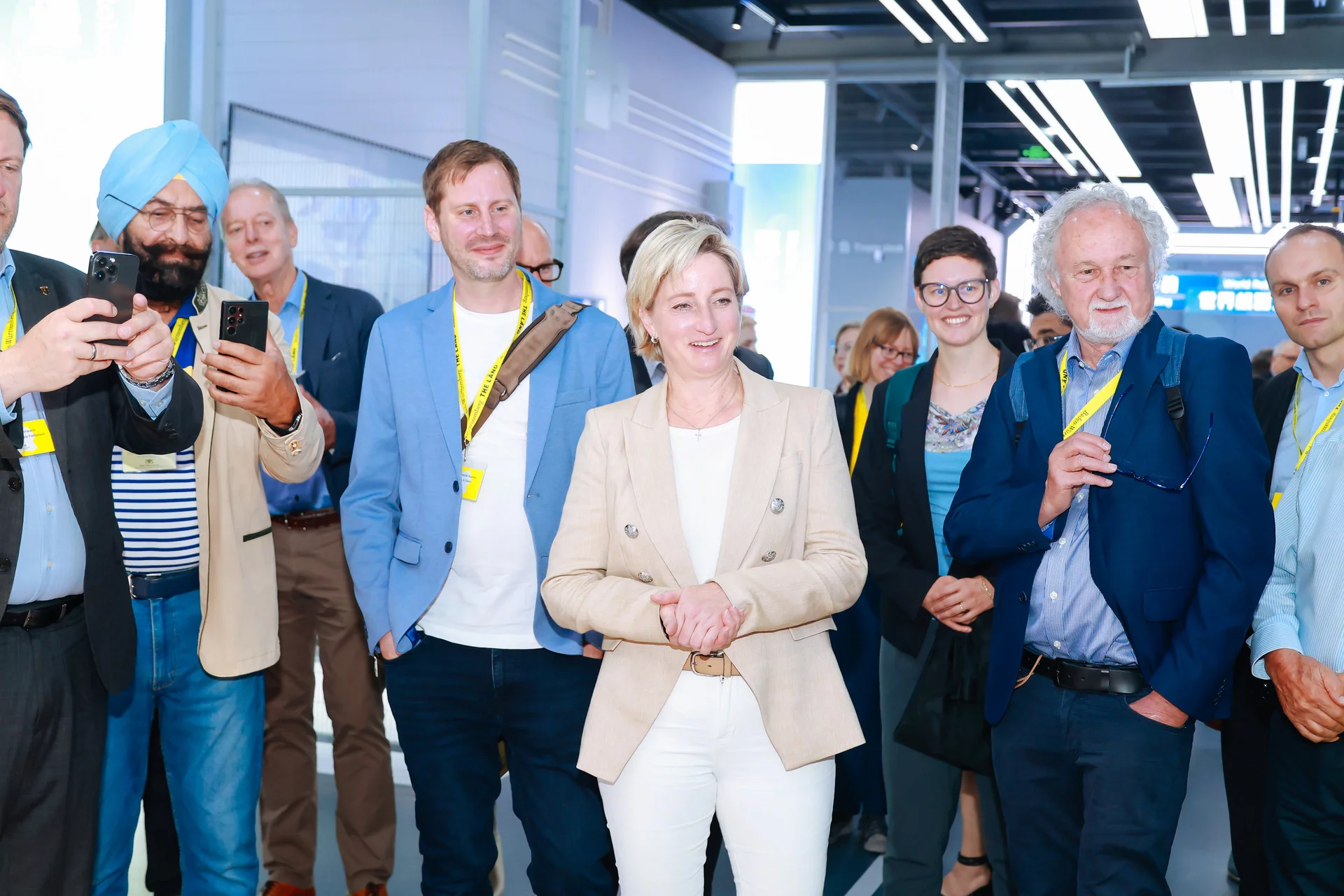
China’s Open-Source Ecosystem
As initiators of the open-source solution Apache StreamPipes, Bytefabrik.AI has pursued an open software model since its founding. Especially in the IIoT environment, challenges regarding data acquisition, data management, and data harmonization are very complex – after all, a wide variety of machines and systems from different manufacturers need to be integrated in such a way that subsequent data analyses generate added value with a direct impact on production KPIs.
The technical hurdles that stand in the way of concrete process improvements are very similar across all manufacturing companies. With Apache StreamPipes, there is an open foundation that takes care of the important aspects of data management and thus paves the way for individual, value-creating applications. That is why we believe in open source – pooling resources that enable all participants to move forward faster.
In China, open source is a key building block for innovation – and is being massively advanced by companies such as Tencent and research institutions. Not only within the Apache Software Foundation, where our project Apache StreamPipes is hosted, there is now a wide range of projects (e.g., the time-series database Apache IoTDB) that were initiated or significantly supported by Chinese companies and are today used by the world’s largest corporations.
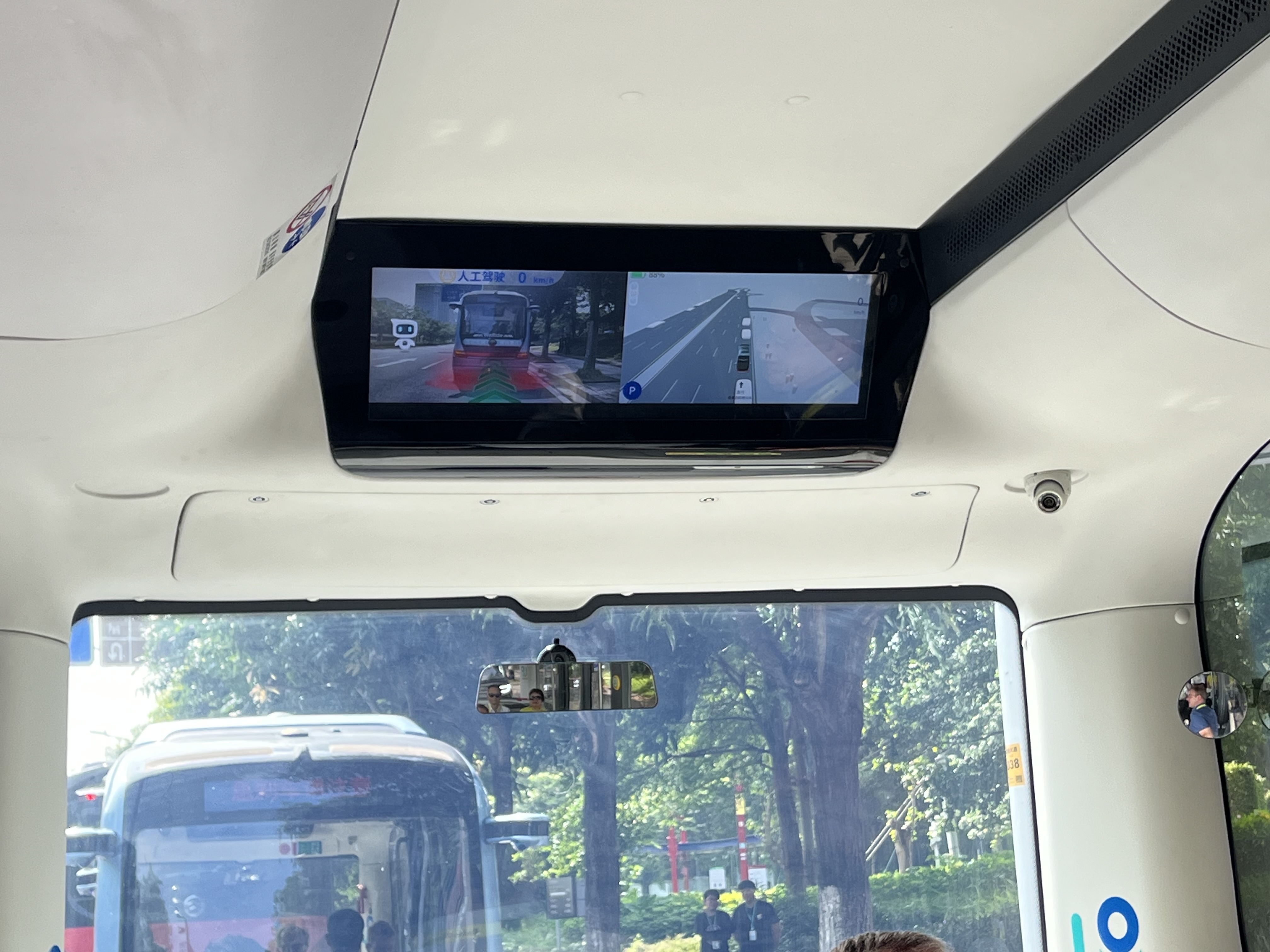
Company Visits
The delegation was divided into two groups, focusing on the topics of "intelligent transport solutions" and "robotics." Bytefabrik.AI was part of the "intelligent transport solutions" group, which not only dealt with autonomous vehicles but also with the supplier industry and vehicle connectivity.
With around four company visits per day over the course of a week, there are too many impressions to recount in detail here. So here are just a few highlights:
- Xiaomi: The electronics and smartphone manufacturer has massively invested in the development of electric vehicles in recent years. At an impressive factory on the outskirts of Beijing, a state-of-the-art automated production facility has been built, where the SU7 vehicle, among others, is manufactured.
- WeRide: WeRide is a leading company in the field of autonomous driving. In an exciting discussion with the company’s executives, we learned more about the technology. Particularly impressive were several test drives with different vehicles in real city traffic.
- XPeng: XPeng is another fast-growing electric vehicle manufacturer that is already active in Germany. At a factory in Guangzhou, we were able to gain insights from company executives into the Chinese perspective on the future of mobility.
- Tencent: As one of the world’s largest internet companies, Tencent plays a central role in China’s tech ecosystem. Tencent’s offering goes far beyond the well-known "WeChat" super app and includes cloud services, AI development platforms, and open-source initiatives.
- Drones: Numerous companies are working on the use of drones for logistics and transport tasks. One standout example is Phoenix Wings, which develops drones for parcel delivery that are already in use in several cities. GeoAI, in addition to drones, develops an impressive software platform for managing and monitoring drone fleets.

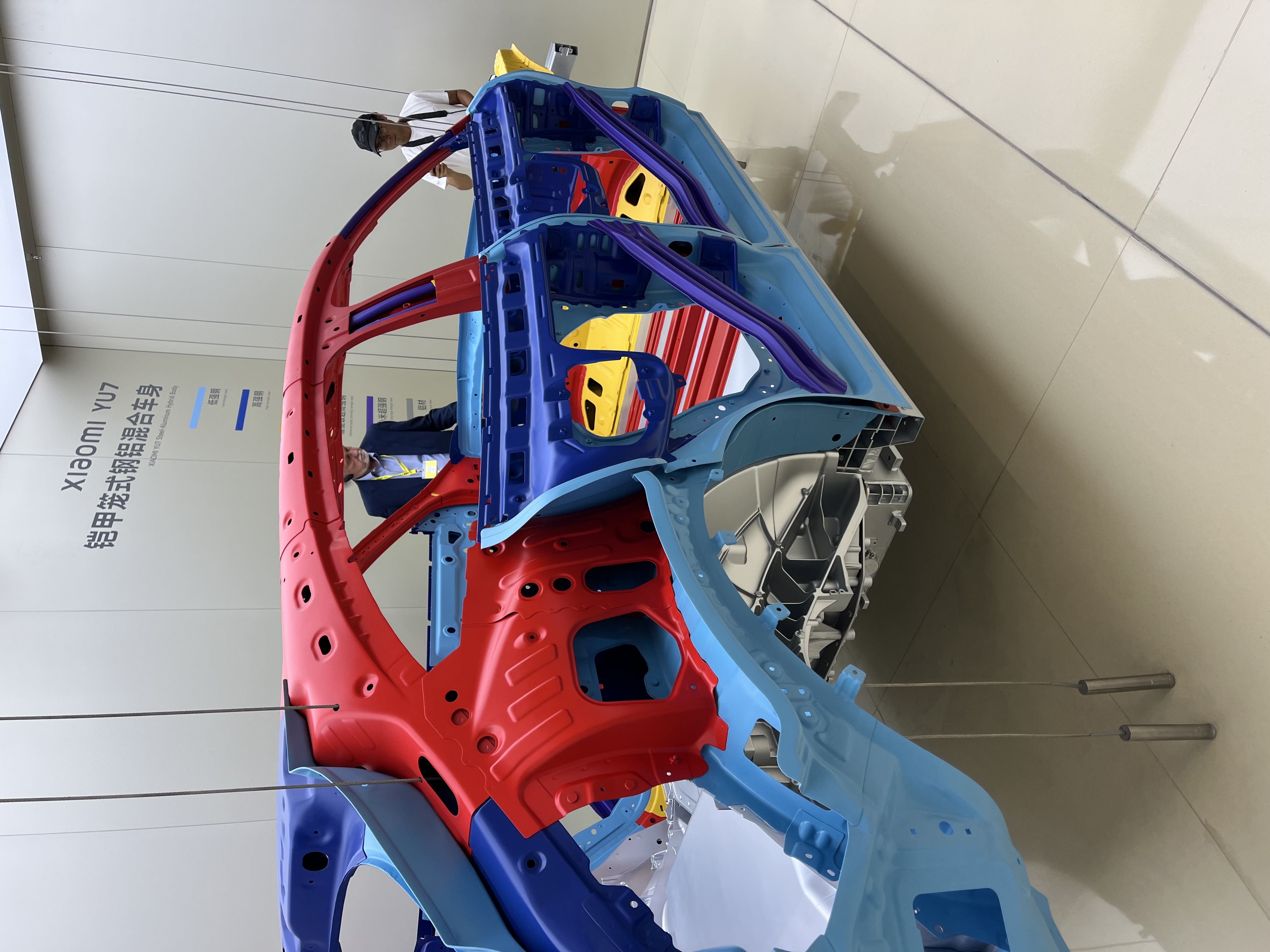
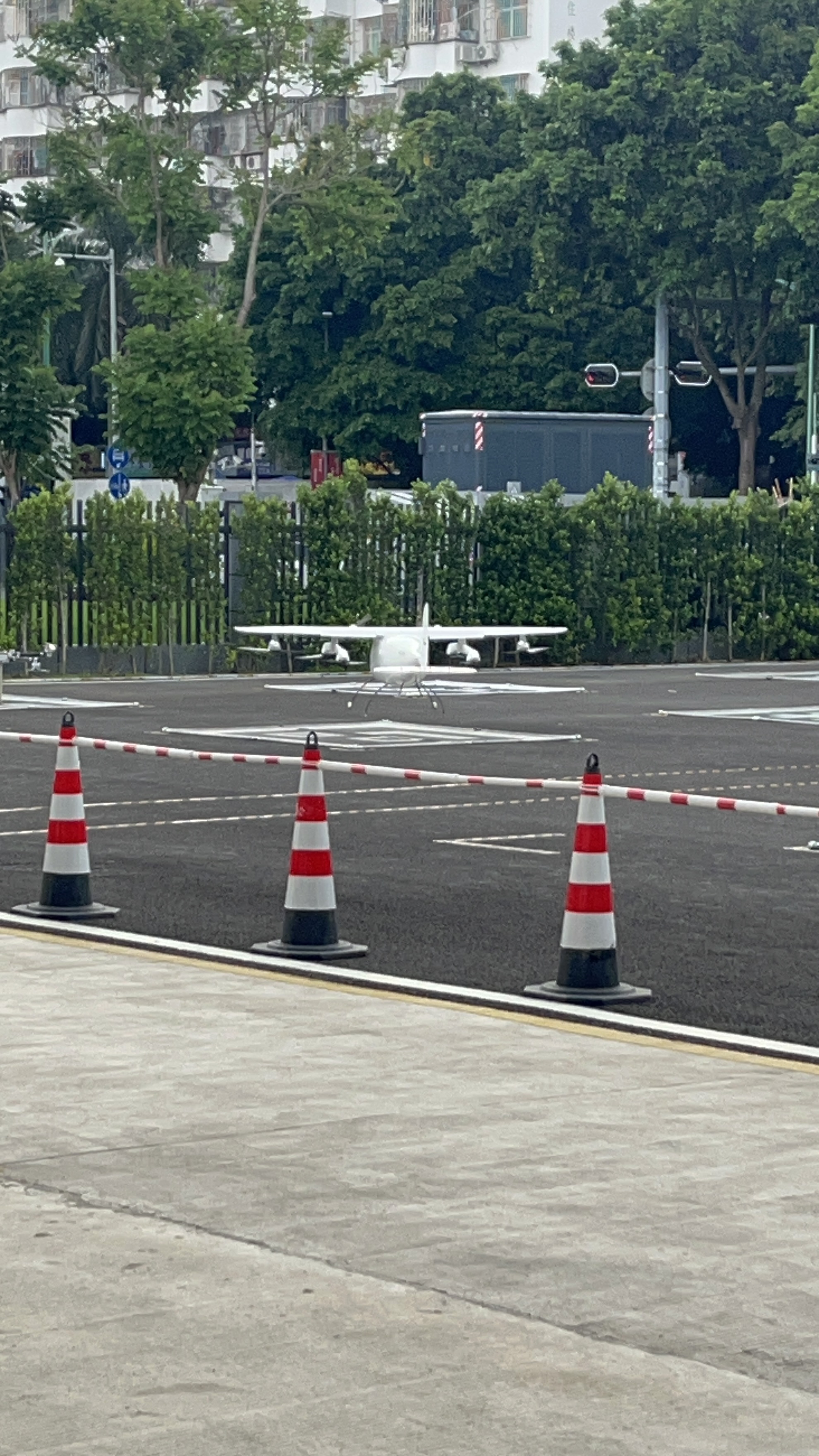
Takeaways
In many areas of digitalization and the networking of vehicles and machines, China is already far ahead. Innovation cycles are short, and there is massive investment in new technologies. There is a mentality of rapid implementation and learning by doing that is truly impressive. Thanks to short decision-making paths, new technologies are developed, tested, and improved quickly. Companies and employees are courageous in trying out new technologies and learn quickly as a result.
We would like to thank the Ministry of Economic Affairs of Baden-Württemberg for the invitation and the excellent organization of the trip. We take away many exciting impressions!
